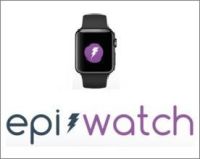In a proof-of-concept study at Johns Hopkins, researchers have shown that small aerial drones can be used to transport samples for routine blood tests for as long as 40 minutes without affecting laboratory results. This finding could open up access to testing in remote areas where health clinics can be miles away from labs. The study is reported in the journal PLoS One.
For this test, the researchers worked in an unpopulated area within an hour’s drive of the Johns Hopkins medical campus in Baltimore. The blood samples seemed minimally affected by travel, according to the research team, who were particularly concerned about the forces the drones experienced in launch and landing. “Such movements could have destroyed blood cells or prompted blood to coagulate and I thought all kinds of blood tests might be affected, but our study shows they weren’t, so that was cool,” said lead investigator Timothy Kien Amukele, MD, PhD, a pathologist at the Johns Hopkins University School of Medicine.
For the study, Dr. Amukele's team collected a total of six blood samples from each of 56 healthy adult volunteers at Johns Hopkins Hospital. The samples were then driven to a flight site an hour’s drive from the hospital on days when the temperature was in the 70s. There, half of the samples were packaged for flight, with a view to protecting them for the in-flight environment and preventing leakage. These samples were then loaded into a hand-launched fixed-wing drone and flown around for periods of six to 38 minutes.
The other half of the samples were driven back from the drone flight field to The Johns Hopkins Hospital Core Laboratory, where they underwent the 33 most common laboratory tests that together account for around 80 percent of all such tests done.
Comparison of lab results of the flown vs. non-flown blood of each volunteer suggested that "the flight really had no impact,” according to Dr. Amukele.
He says the likely next step is a pilot study in a location in Africa where healthcare clinics are sometimes 60 or more miles away from labs.
Source and image credit: Johns Hopkins Medicine
For this test, the researchers worked in an unpopulated area within an hour’s drive of the Johns Hopkins medical campus in Baltimore. The blood samples seemed minimally affected by travel, according to the research team, who were particularly concerned about the forces the drones experienced in launch and landing. “Such movements could have destroyed blood cells or prompted blood to coagulate and I thought all kinds of blood tests might be affected, but our study shows they weren’t, so that was cool,” said lead investigator Timothy Kien Amukele, MD, PhD, a pathologist at the Johns Hopkins University School of Medicine.
For the study, Dr. Amukele's team collected a total of six blood samples from each of 56 healthy adult volunteers at Johns Hopkins Hospital. The samples were then driven to a flight site an hour’s drive from the hospital on days when the temperature was in the 70s. There, half of the samples were packaged for flight, with a view to protecting them for the in-flight environment and preventing leakage. These samples were then loaded into a hand-launched fixed-wing drone and flown around for periods of six to 38 minutes.
The other half of the samples were driven back from the drone flight field to The Johns Hopkins Hospital Core Laboratory, where they underwent the 33 most common laboratory tests that together account for around 80 percent of all such tests done.
Comparison of lab results of the flown vs. non-flown blood of each volunteer suggested that "the flight really had no impact,” according to Dr. Amukele.
He says the likely next step is a pilot study in a location in Africa where healthcare clinics are sometimes 60 or more miles away from labs.
Source and image credit: Johns Hopkins Medicine
Latest Articles
healthmanagement, blood sample, Johns Hopkins, lab tests, drone
In a proof-of-concept study at Johns Hopkins, researchers have shown that small aerial drones can be used to transport samples for routine blood tests for as long as 40 minutes without affecting laboratory results.



























